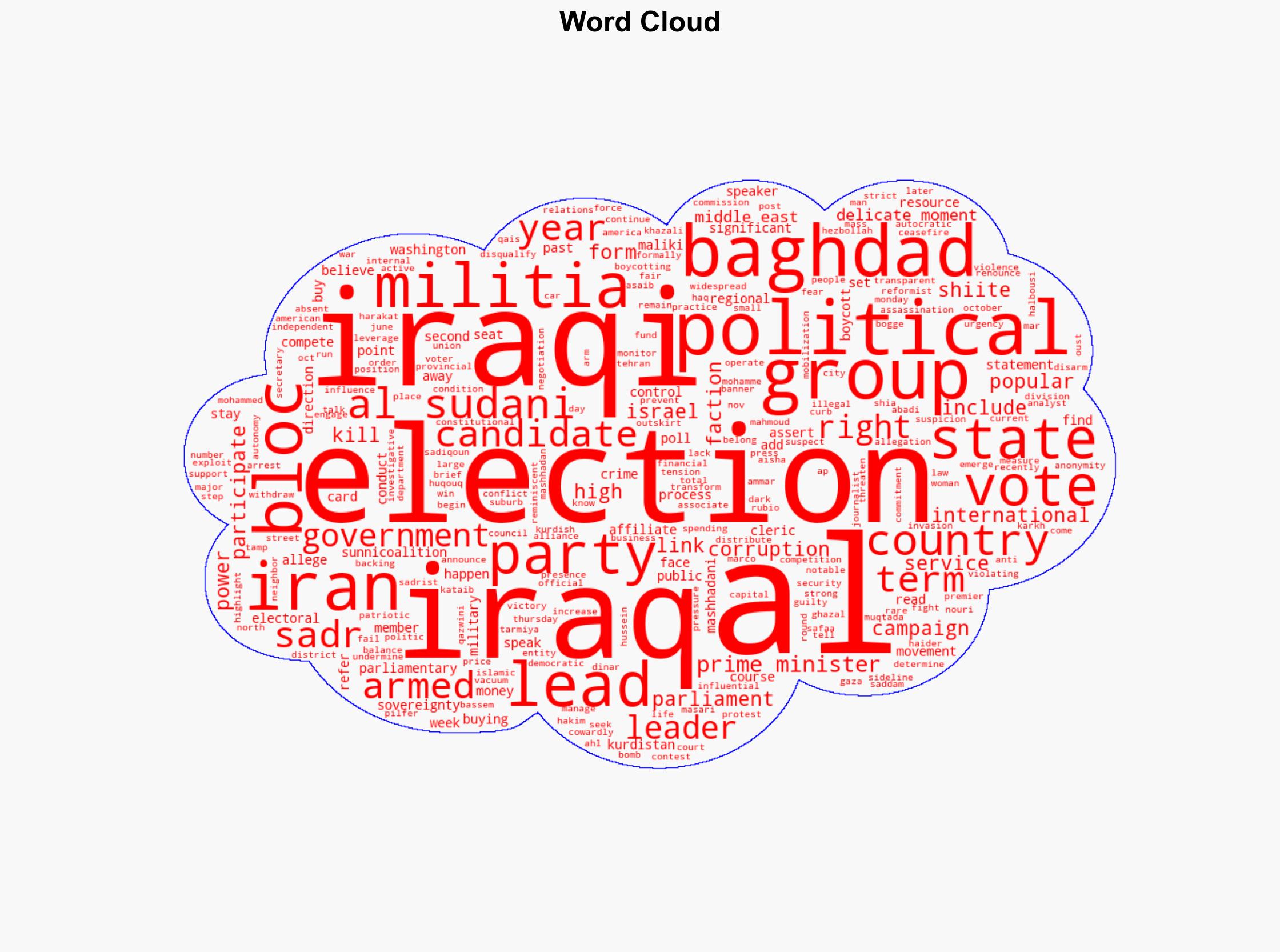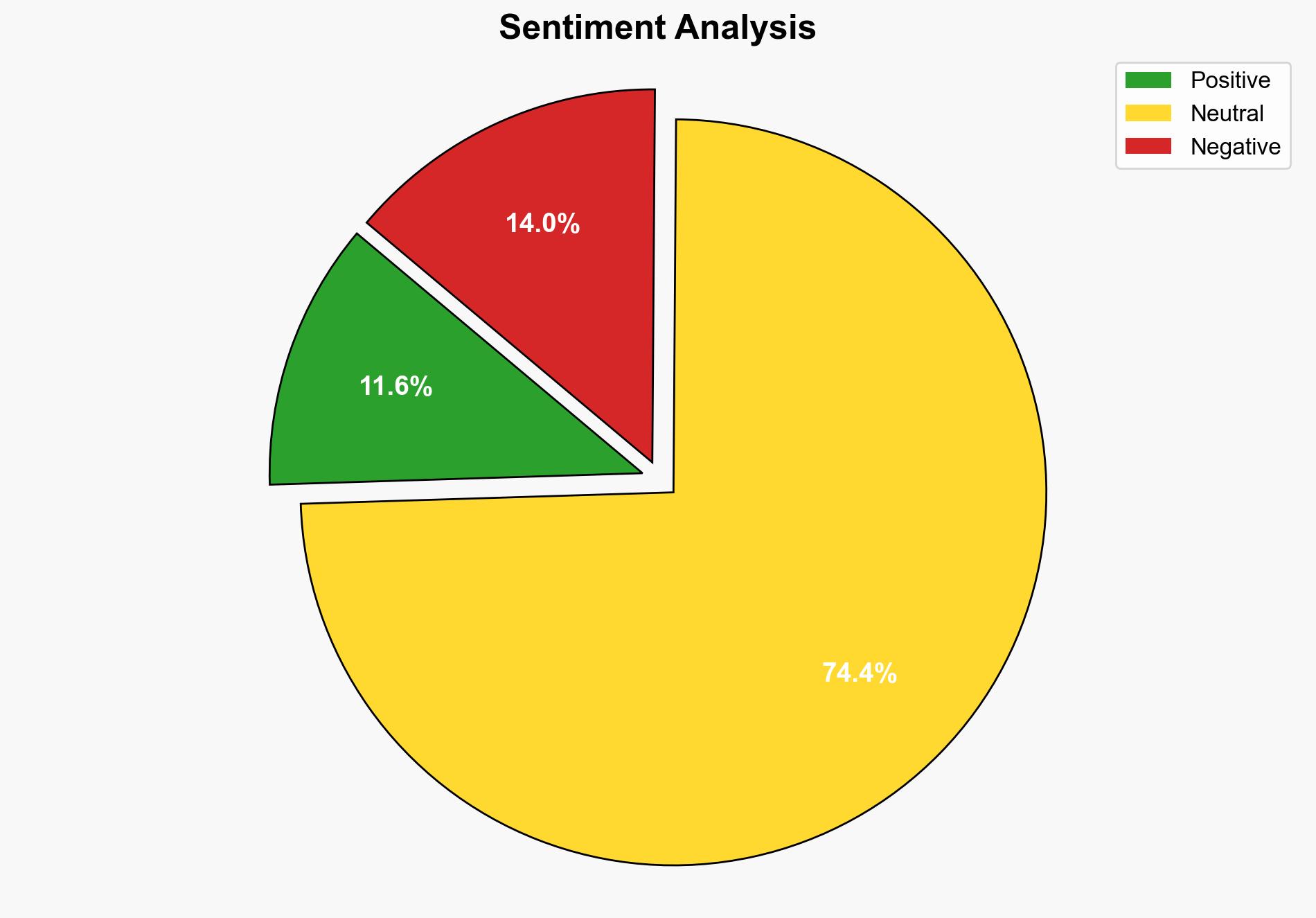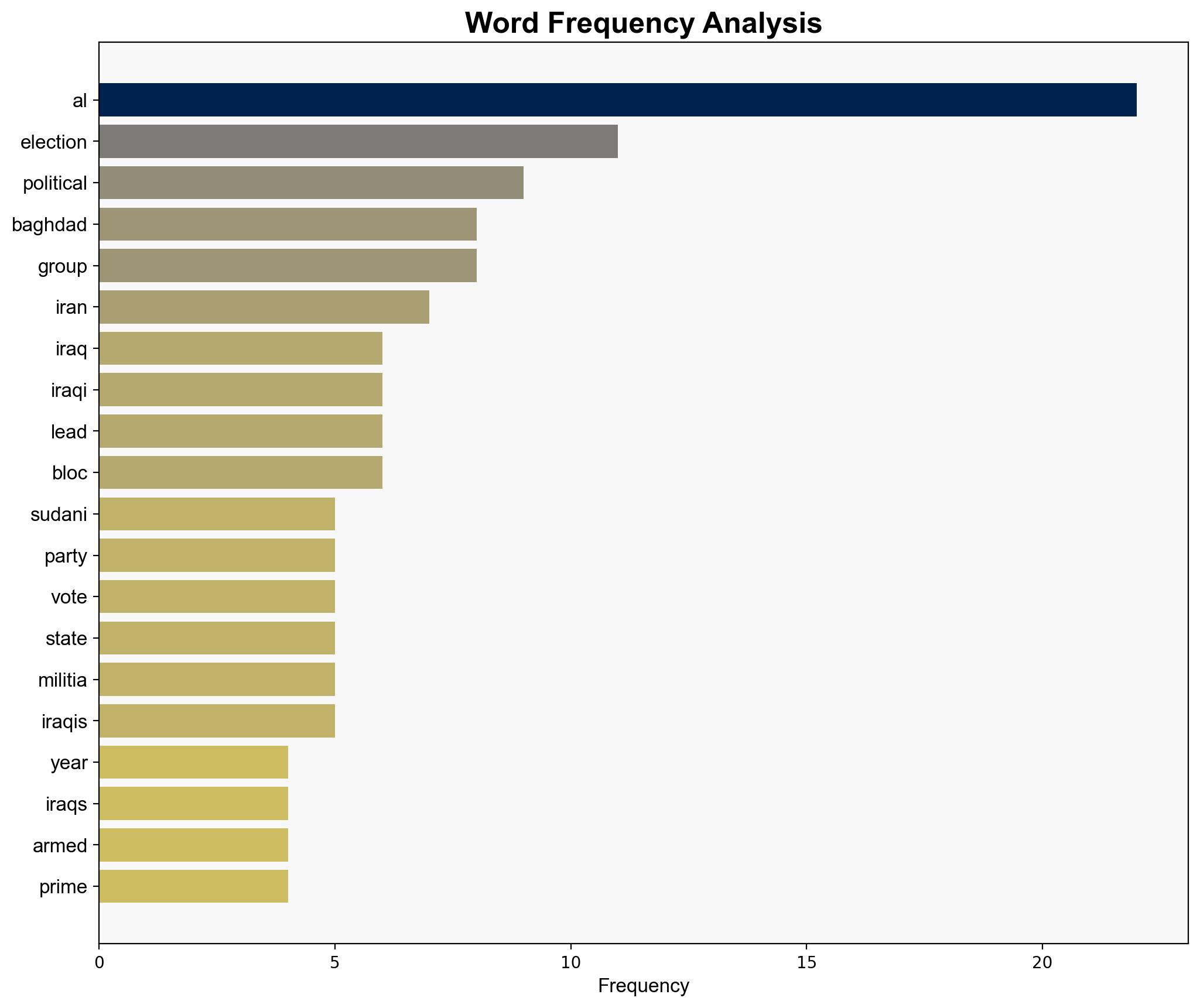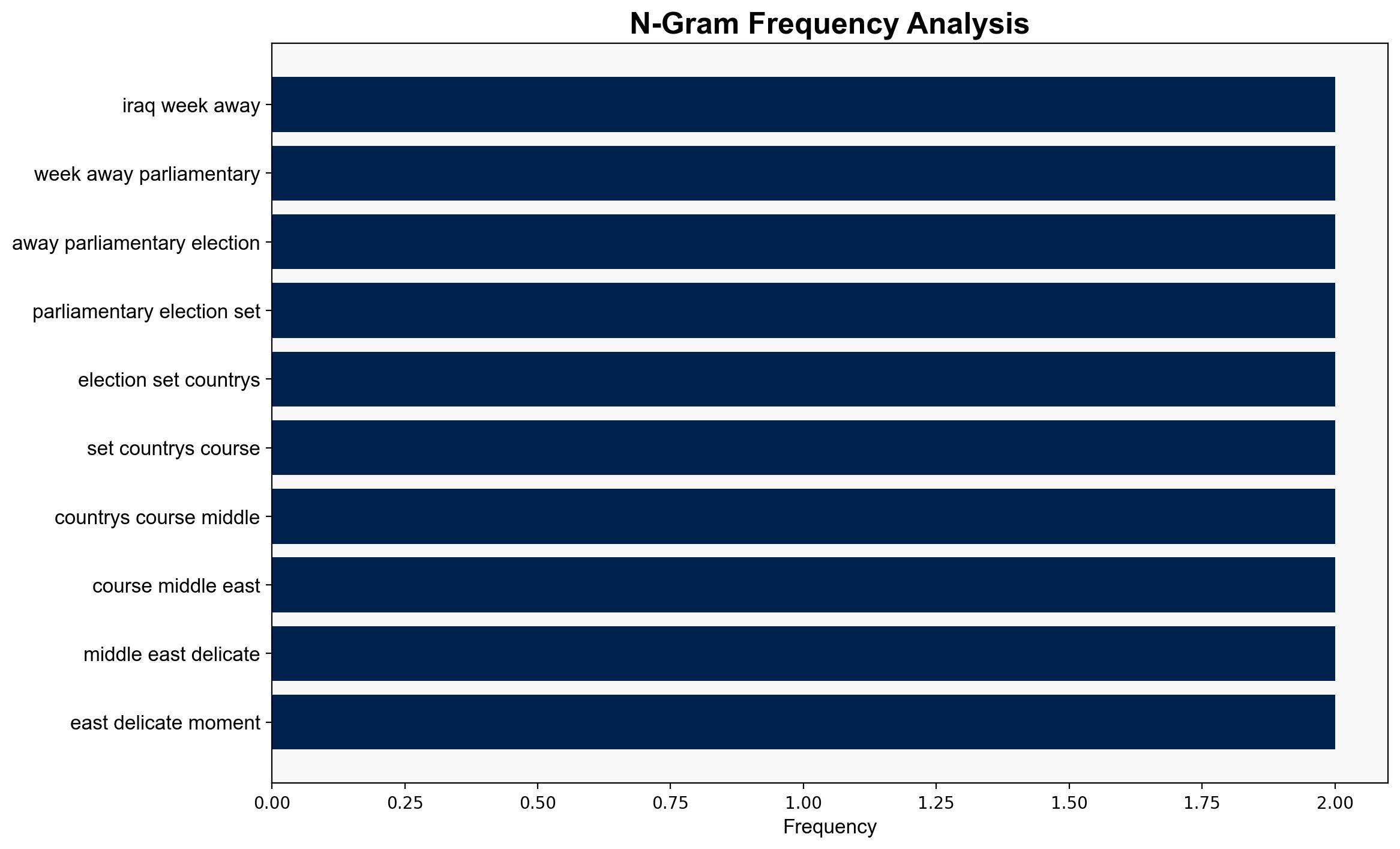Iraq faces elections at a delicate moment in the Middle East – ABC News
Published on: 2025-10-24
Intelligence Report: Iraq faces elections at a delicate moment in the Middle East – ABC News
1. BLUF (Bottom Line Up Front)
The upcoming Iraqi parliamentary elections present a critical juncture with potential regional implications. The most supported hypothesis suggests that the elections will exacerbate existing tensions between pro-Iranian factions and those seeking stronger ties with the West, potentially destabilizing the region further. Confidence level: Moderate. Recommended action: Enhance diplomatic engagement with Iraqi stakeholders to promote a balanced outcome and prevent escalation.
2. Competing Hypotheses
1. **Hypothesis A**: The elections will lead to increased influence of Iran-linked groups in Iraq, further aligning Iraq with Tehran’s regional agenda. This is supported by the presence of strong Shiite blocs and Iran-backed militias in the electoral process.
2. **Hypothesis B**: The elections will result in a more balanced government that seeks to maintain neutrality between Iran and the West. This is supported by the participation of diverse political factions, including Sunni and Kurdish parties, and the absence of the Sadrist movement which could reduce sectarian polarization.
Using ACH 2.0, Hypothesis A is better supported due to the historical influence of Iran-backed groups and their significant military and financial resources.
3. Key Assumptions and Red Flags
– **Assumptions**: Hypothesis A assumes that Iran-linked groups will effectively leverage their resources to gain political power. Hypothesis B assumes that the absence of the Sadrist movement will lead to a more balanced political landscape.
– **Red Flags**: Allegations of vote-buying and electoral violence could undermine the legitimacy of the elections. The killing of a Sunni candidate raises concerns about political violence influencing outcomes.
– **Blind Spots**: Limited information on the internal dynamics of reformist groups and their potential impact on the elections.
4. Implications and Strategic Risks
– **Regional Tensions**: Increased Iranian influence could heighten tensions with Israel and the U.S., potentially leading to regional instability.
– **Internal Conflict**: Political violence and electoral fraud allegations could lead to civil unrest and weaken Iraq’s democratic institutions.
– **Economic Impact**: Prolonged instability may deter foreign investment and exacerbate Iraq’s economic challenges.
5. Recommendations and Outlook
- Enhance diplomatic efforts to support fair and transparent elections, potentially involving international observers.
- Engage with moderate factions to promote a balanced government that can act as a stabilizing force in the region.
- Scenario Projections:
- **Best Case**: A balanced government emerges, reducing regional tensions and fostering economic recovery.
- **Worst Case**: Increased Iranian influence leads to regional conflict and internal instability.
- **Most Likely**: A fragmented government with ongoing tensions between pro-Iranian and pro-Western factions.
6. Key Individuals and Entities
– Mohammed Shia al-Sudani
– Nouri al-Maliki
– Ammar al-Hakim
– Muqtada al-Sadr
– Haider al-Abadi
– Kataib Hezbollah
– Asaib Ahl al-Haq
7. Thematic Tags
national security threats, regional focus, political instability, electoral integrity





